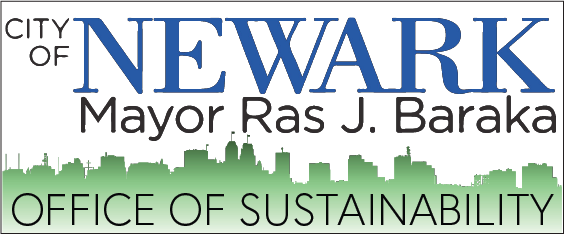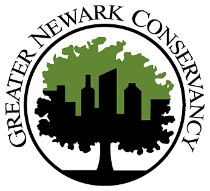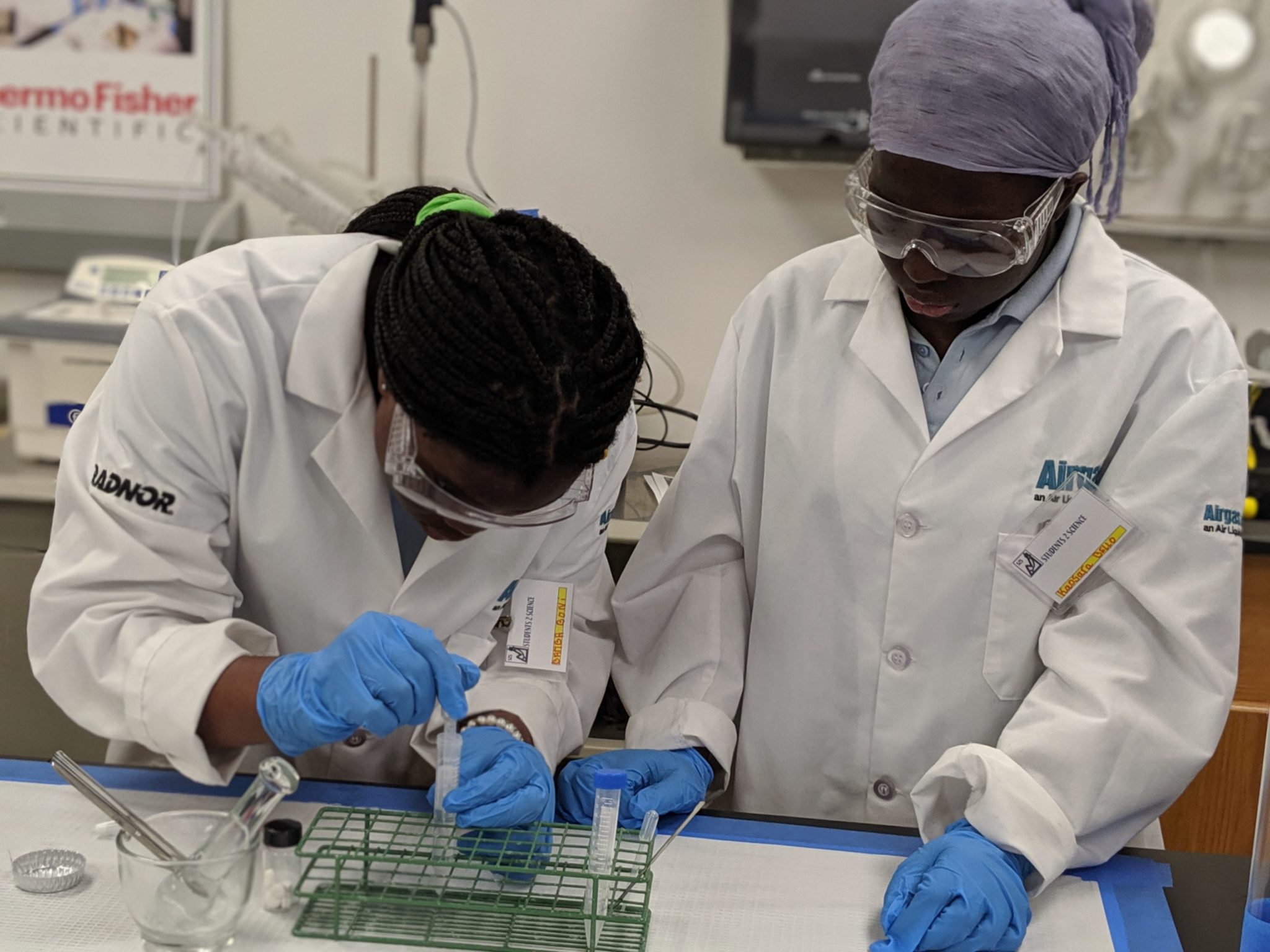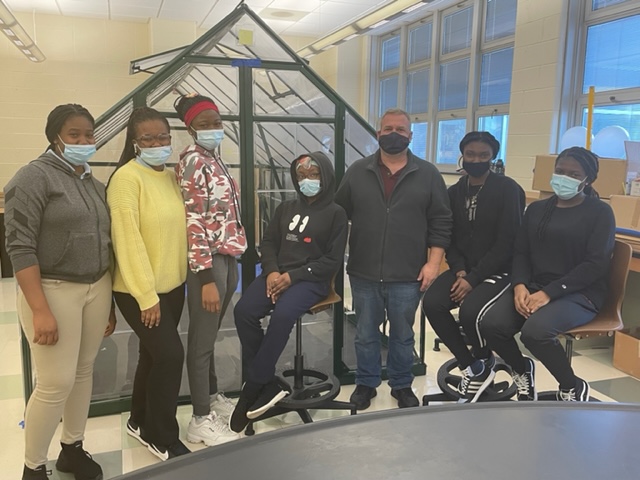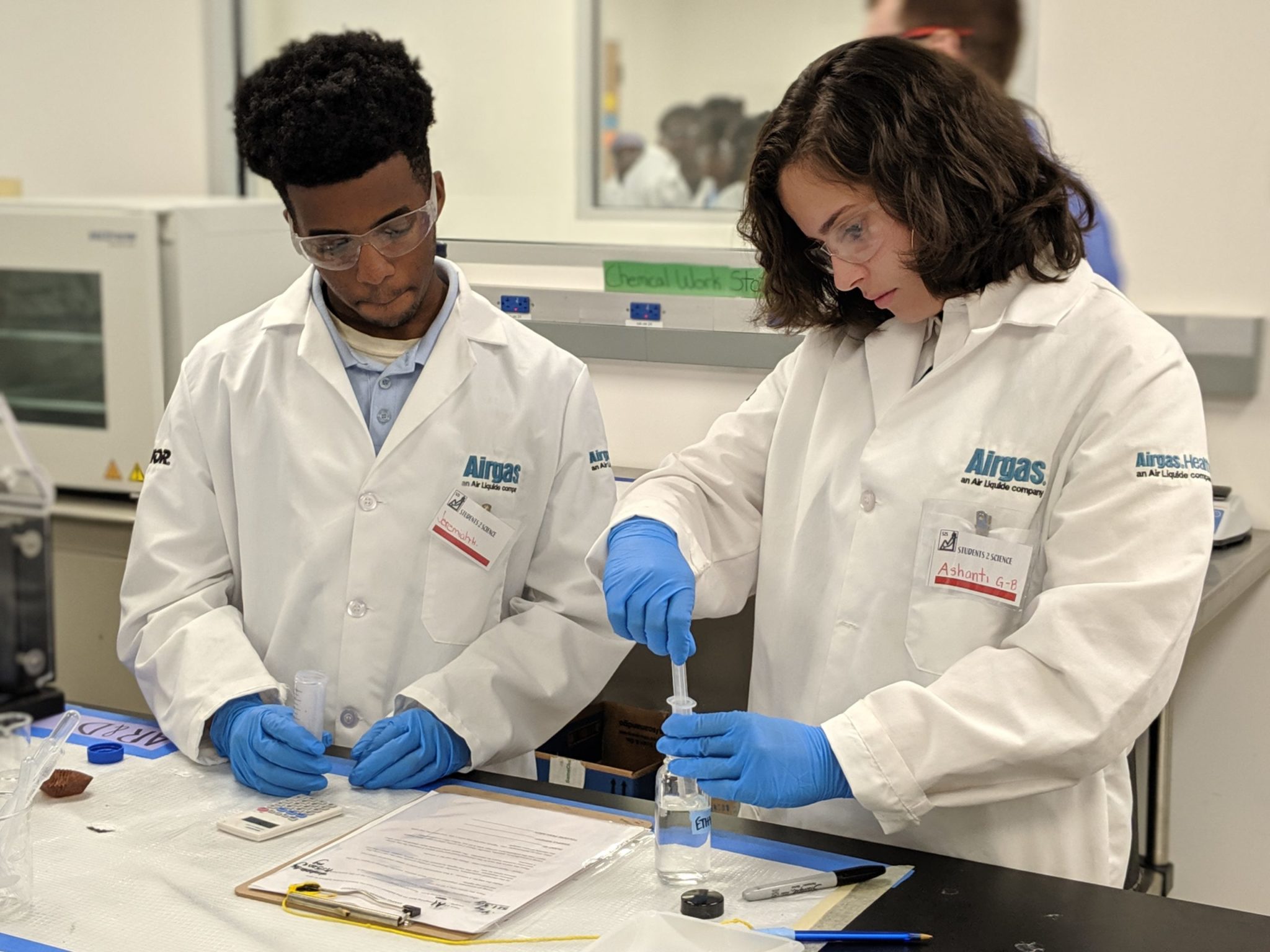
This Academy will empower students to acquire the necessary academic, technical, and marketable skills to enter, compete, and advance in their education and career in a global economy. The purpose of the academy is to give students hands-on experiences with a social justice approach to solving environmental issues as it relates to climate, horticulture, and environmental sustainability.
Pathways & Experiences
-
Environmental Studies Academy
- Study earth’s ecosystems, organisms and natural resources, and develop a knowledge of the interconnectedness of life.
- Examine interactions between global, social, and human systems to understand and neutralize threats to ecological balance.
- Explore chemistry, mathematics, and science from an environmental perspective.
- Innovate solutions to local, national, and global ecological problems.
- Conduct research in state-of-the-art laboratories and field locations.
Course Sequence
Freshman Year
Environmental Studies I
This class explores the foundations of the environmental justice movement, current and emerging issues, and the application of environmental justice analysis to environmental policy and planning.
It explores that all people have a right to live in a clean environment free from hazardous pollution or contamination and the natural resources(air, soil, and water) necessary to sustain health and livelihood. This course will explore why, and through what social, political, and economic processes, some people are denied this basic right.
Sophomore Year
Environmental Studies II
This course introduces students to the theory, principles, and practices of sustainability. It will include discussions on maintaining ecological and environmental health, creating economic welfare, and ensuring social justice.
Sustainability was defined by the World Commission on Environment and Development (Brundtland Commission) in 1987 as “meeting the needs of society of today without compromising the ability of future generations to meet their own needs.” Achieving sustainability requires a multi-disciplinary approach that balances economic prosperity while providing equitable opportunities for all socio-economic classes and protects the viability of the planet’s natural systems. Emphasis on Renewable Energy: Solar, Wave Energy.
Junior Year
Environmental Studies III
This course explores how today’s human societies can endure in the face of global change, ecosystem degradation, and resource limitations. The course focuses on key knowledge areas of sustainability theory and practice, including population, ecosystems, global change, energy, agriculture, nutrient recycling, and the water cycle. Emphasis on Environmental Chemistry: Nutrient Recycling
Senior Year
Environmental Studies IV
Develop students’ scientific and social literacy, consensus building, information management, interpersonal expression, creative problem solving, and critical thinking while providing skills training for identifying and solving problems objectively—individual research to be carried out under internship guidance.
Students will explore the materials in depth and organize around critical environmental issues in the communities where they live and work; in-class discourse, and out-of-class experience( guess speakers, virtual conferences with experts/leaders). Provide students exposure to and exploration of environmental concepts that could provide opportunities for stewardship and leadership in conservation, environmental, and community development. This course will create emerging environmental leaders that will campaign for better access, better representation, better and healthier spaces to live, work, and play. Finally, this course will create a strong network to learn and get support from community-based partnerships to improve student knowledge and insight about the field and post-high school employment.
[su_table]
| Opportunities for College Credit, Credentials, & Certifications: | Up to 9 credits from Kean University and OSHA 10 Certification |
| Potential Job Opportunities: | Climate Change Analyst or Modeler, Environmental Chemist, Environmental Educator, Environmental Engineer, Environmental Field Technician, Environmental Health and Safety Specialist or Manager, Environmental Lawyer, Environmental Public Relations Specialist, Environmental Risk Manager, Environmental Specialist, GIS (Geog. Info. Syst.) Specialist, Green Building Design, Landscape Architect, Meteorologist, Nature Conservation Officer, Park Ranger/Manager, Solar or Wind Energy Engineer, Water Quality Scientist, Wetland Specialist |
| Work-Based Learning: | Career Assessment, Career Day, Company Tours, Field Trips, Guest Speakers, Internships, Job Shadowing, Mentoring, Mock Interviewing, Project Based Learning, Student-run Enterprise, Volunteer Opportunities |
[/su_table]
Partners




